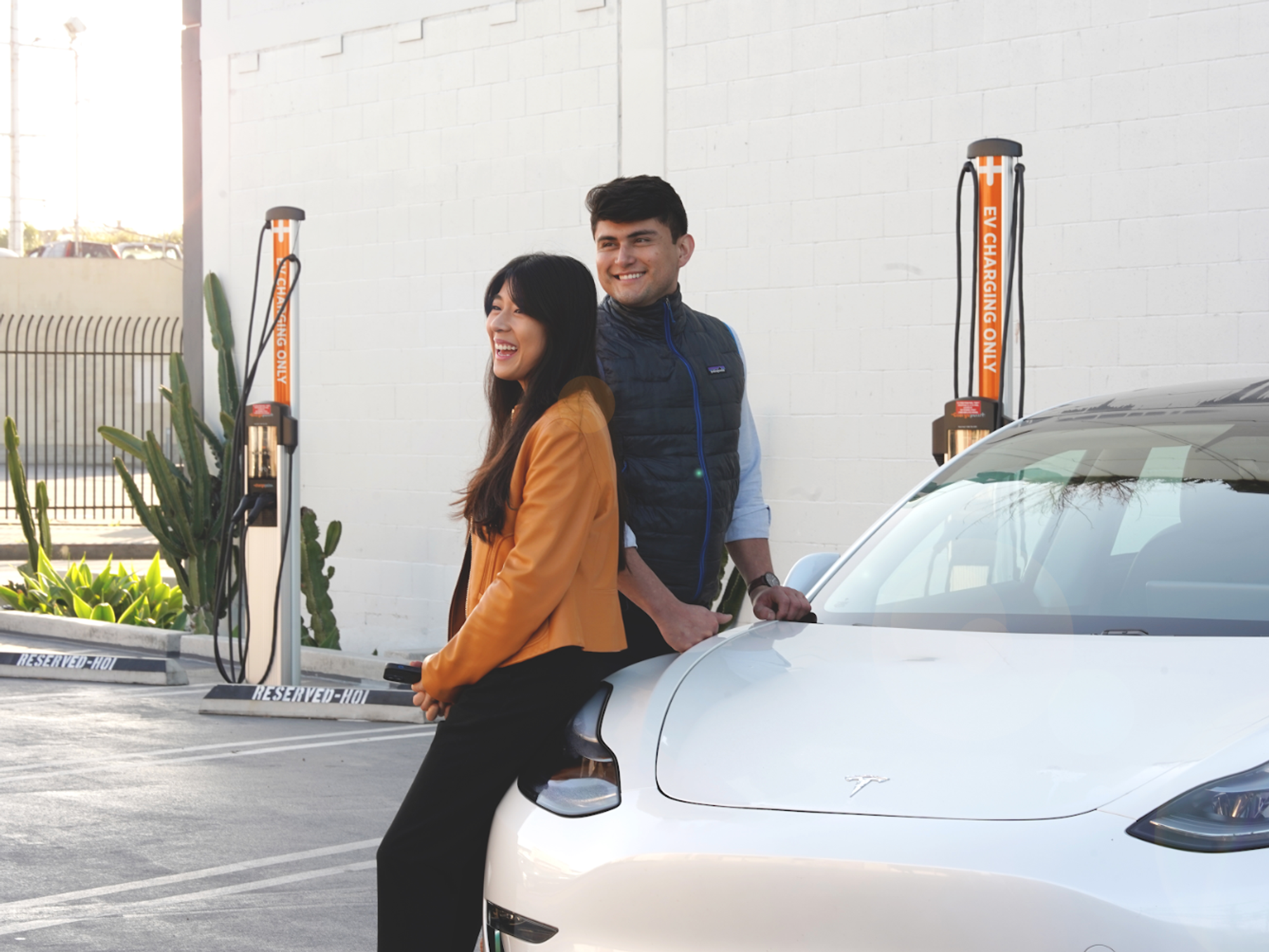GreenWealth Energy Is Here to Tackle California’s Biggest Hurdle to Electrification: Red Tape
David Shultz reports on clean technology and electric vehicles, among other industries, for dot.LA. His writing has appeared in The Atlantic, Outside, Nautilus and many other publications.

In August last year, the California Air Resources Board voted to ban the sale of new gasoline powered automobiles starting in 2035. To realize that goal, California will need to add roughly 12.25 million electric vehicles to its roads over the next 12 years. Experts estimate that it will take more than 1.2 million chargers to support a fleet that size. For comparison, there are just over 80,000 public chargers in the state today. Which means to make up the difference, the EV industry will need to produce 99,333 new chargers per year.
Such an undertaking obviously comes with myriad technical hurdles, but the biggest obstacle facing the state might be the thicket of red tape surrounding the infrastructure rollout.
Right now, to secure funding for a new charger installation, property owners must navigate a complex web of rebates, incentives, and tax breaks offered at the local, state, and federal level. Permitting and installation, especially in Southern California, can be a bureaucratic quagmire requiring multiple rounds of planning and revision that can drag on for years and costs hundreds of thousands of dollars.
And since zoning laws aren’t likely to change anytime soon, EV charging company GreenWealth Energy is trying too make this complex process smoother for property owners and bring more chargers to the places that need them. Though the company doesn’t eliminate the red tape, it does help its customers dance through it.
GreenWealth’s CEO Ariel Fan got her start in clean energy helping businesses transition to energy-efficient LED lighting when she was still in college. At the time, a host of rebates were available to make this switch as easy as possible. But Fan noticed that many businesses, especially smaller ones that might lack a sustainability officer, didn’t even know that the incentives existed. So naturally she launched GreenWealth in 2016 to help companies navigate the landscape.
As EV charging caught on, Fan saw the same story playing out in a new market.
In 2019, the company added ChargePoint as a corporate partner and turned its attention fully to the EV sector. (Despite the partnership, GreenWealth remains technology agnostic, and the company has installed chargers from Blink, SWTCH, and other brands.)
GreenWealth's value proposition is that it can help property owners get chargers installed faster and for less money. They also do consulting for companies like Disney or Hyundai that need to install large amounts of chargers across different states with different incentive landscapes. Their website claims, “Our superpower is stacking rebates, grants and tax credits for commercial and multifamily properties.”
The company places a heavy emphasis on helping underserved communities gain access to the infrastructure as well. “It’s an equity conversation and an equity issue,” says Fan. “When you go into the lower-income zip codes, it's more likely that the utility doesn't have good infrastructure there. And a lot of times, unfortunately, it kills projects.”
And as the first first woman and minority owned EV charging company in the United States, Fan wants to use GreenWealth to pave the way for others like her. “Our thesis is we seek to empower other women and small businesses to lead,” she says. “We want to procure as much as possible with them, and we work with them, and we open doors for new companies like that.”
So far, the approach seems to be working. Fan says GreenWealth has secured $20 million dollars in contracts with another $40 million in the pipeline. Until this point, the 18-person company has been essentially bootstrapped, but is now looking to raise its first round of institutional investment in order to scale up. Fan says the exact amount they’re looking to raise will depend on the partner. But GreenWealth is looking for a mix of both working capital and project finance. “We will be helping over 100 cities and communities adopt EV as soon as possible, in the smartest way possible,” says Fan. Expanding will require that GreenWealth learn a whole new set of state regulations and legal loopholes, but if it can be done in California, most other places should be a breeze.
- Faraday Future Is Planning a New Factory in China ›
- As Hydrogen Emerges As a Clean Energy Option, H2scan Raises $70 Million ›
- LA Now Gets 60% of Its Energy From Carbon-Free Sources ›
- Kore Infrastructure Is Turning Waste Into Clean Energy in Downtown LA ›
- SWTCH Energy Brings EV Charging to Multi-Tenant Buildings - dot.LA ›
David Shultz reports on clean technology and electric vehicles, among other industries, for dot.LA. His writing has appeared in The Atlantic, Outside, Nautilus and many other publications.




 Image Source: JetZero
Image Source: JetZero